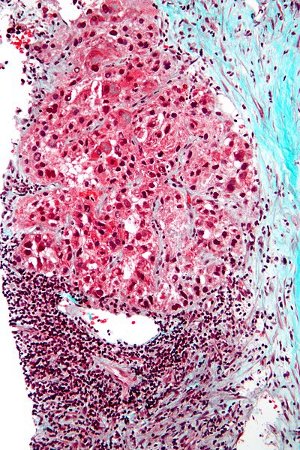
Astex Pharmaceuticals has commenced a Phase II trial of SGI-110 in advanced hepatocellular carcinoma (HCC) patients who failed to respond to treatment with Nexavar (sorafenib).
SGI-110 is a small molecule DNA-hypomethyating agent with proven activity in restoring silenced tumour suppressor gene expression in cancer cells by reversal of DNA methylation.

Discover B2B Marketing That Performs
Combine business intelligence and editorial excellence to reach engaged professionals across 36 leading media platforms.
Astex chief medical officer Dr Mohammad Azab said there is a high unmet need for therapies to treat advanced HCC patients who have failed sorafenib treatment.
"We are pleased to initiate this study which expands the investigational breadth of our development program for SGI-110 to include HCC in addition to the ongoing studies in myelodysplastic syndromes (MDS), acute myeloid leukemia (AML) and ovarian cancer," Azab said.
The single-arm, non-randomised study uses Simon’s two-stage design, which includes Part A and Part B.
Part A will enrol a total of 15 patients in Stage 1, designed to assess the safety, disease control and methylation status of certain tumour suppressor genes known to be involved in HCC.

US Tariffs are shifting - will you react or anticipate?
Don’t let policy changes catch you off guard. Stay proactive with real-time data and expert analysis.
By GlobalDataPart B, which will follow the success of Part A, would enrol 31 additional patients in Stage 2.
The primary endpoint of the open-label study includes disease control rate (DCR) at 16 weeks, defined as the percentage of patients who achieve a best clinical response of complete or partial response, or stable disease at that time.
Secondary endpoints include the incidence and severity of adverse events, global DNA methylation levels, methylation status of selected tumour suppressor genes in tumour tissue, progression-free survival and overall survival.
Preclinical research has demonstrated the ability of SGI-110 in inducing global DNA and gene-specific hypomethylation, consequently enabling the re-expression of tumour suppressor genes in HCC cell lines.
Image: Intermediate magnification micrograph of hepatocellular carcinoma the most common form of primary liver cancer. Photo: Courtesy of Nephron.





